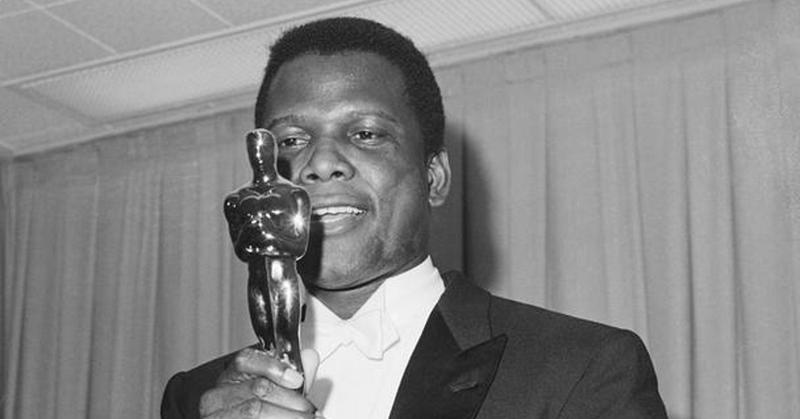5 Facts About Sidney Poitier
By | January 12, 2022

He Was The First African-American Best Actor Oscar Winner
Of course, if you know one thing about the legendary actor Sidney Poitier, you know that he was the first African-American to win an Oscar for a leading role, the second win for an African-American ever (after Hattie McDaniel's win for her depiction of the controversial Mammy character in 1939's Gone With The Wind). Poitier won Best Actor in 1963 for his role in Lilies Of The Field, but it took 38 years for another African-American actor (Denzel Washington, for Training Day) to win the award. In his speech, Washington said of Poitier, "I'll always be chasing you, Sidney. I'll always be following in your footsteps. There's nothing I would rather do, sir. Nothing I would rather do." The next year, Poitier won another Oscar for his Lifetime of Achievement.
He Grew Up In The Bahamas
Although Poitier was born in Miami when his mother went into labor three months early while visiting relatives, he lived in the Bahamas until he was 15, when he returned to his birthplace and eventually made his way to New York to try his hand at acting. He was sent to America with only three dollars from his father, a tomato farmer, with the hope that the country would offer a more prosperous life. During World War II, he enlisted in the U.S. Army, going so far as to lie about his age for the purpose, and worked in a veterans hospital.

He Had Trouble Reading
Poitier soon fell in love with acting, but due to his spotty schooling, he struggled to read the scripts he was given at the American Negro Theater. Luckily, an older man at the restaurant where Poitier worked took an interest in his dream, and according to Poitier, "he sat there with me week after week after week," explaining punctuation and how it affected the meaning of a line. Eventually, he succeeded at the American Negro Theater and climbed the ladder to Broadway and eventually Hollywood.
He Had A Reputation For Elegance
There were very few positive depictions of black Americans in cinema when Poitier began his work, so he was determined to carve out a career that embodied elegance and dignity. Many of his major roles were as men struggling in a racist society, such as his turn as a Philadelphia detective solving a murder in Mississippi in In The Heat Of The Night, which featured iconic lines like "They call me Mr. Tibbs." In 1967, he starred in Guess Who's Coming To Dinner, an acclaimed comedy featuring an interracial couple which premiered only six months after interracial marriage was federally legalized by Loving v. Virginia.

He Rallied For Civil Rights
Summer 1964 was known as the "Freedom Summer," thanks to Civil Rights activists who worked tirelessly to register black voters in Mississippi despite violent pushback, most notably the infamous Mississippi Burning murders of three organizers by local police with connections to the Ku Klux Klan. After the horrifying murders, Poitier and fellow activist/actor Harry Belafonte personally raised and delivered much-needed funds to the tune of $70,000 to area activists. They ended up being chased out of town by armed members of the Klan, but luckily, no one was hurt.
In 2009, President Obama awarded Poitier the Presidential Medal of Freedom, remarking that "Sidney Poitier does not make movies; he makes milestones. Milestones of artistic excellence, milestones of America's progress ... He not only entertained but enlightened, shifting attitudes, broadening hearts, and revealing the power of the silver screen to bring us closer together."

